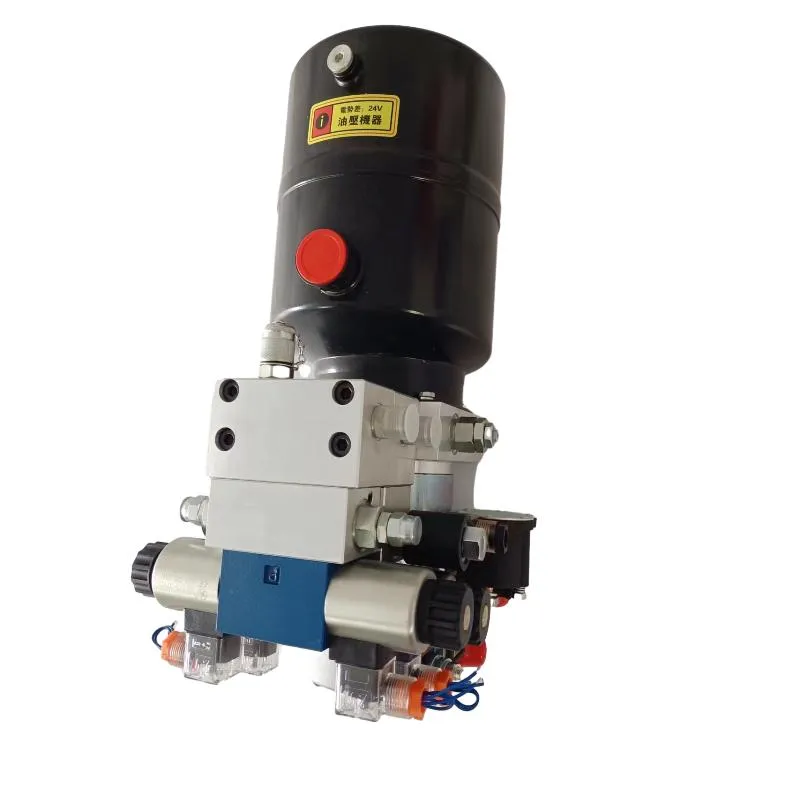Jul . 31, 2024 13:22 Back to list
Top Manufacturers of Sensor-Equipped Hydraulic Cylinders for Enhanced Performance and Precision Control
The Role of Sensor Technology in Hydraulic Cylinder Manufacturing
In the ever-evolving landscape of industrial automation, the integration of sensor technology in hydraulic cylinder manufacturing has become a cornerstone for increased efficiency and precision. Hydraulic cylinders are essential components in various machinery and applications, ranging from construction equipment to aerospace systems. The incorporation of sensors within these hydraulic systems not only enhances their performance but also revolutionizes maintenance and monitoring practices.
1. Understanding Hydraulic Cylinders and Their Functionality
Hydraulic cylinders are devices that convert hydraulic energy into mechanical energy, generating precise linear motion. Composed of a cylinder barrel, piston, and cylinder cap, these components work in unison to exert force and move loads. In industries where accuracy and reliability are paramount, like automotive or manufacturing, the performance of hydraulic cylinders can significantly impact overall operational efficiency.
2. The Importance of Sensor Integration
The integration of sensors in hydraulic systems is pivotal. Sensors can monitor various parameters such as pressure, temperature, fluid levels, and position. This real-time data allows manufacturers to optimize performance and foresee potential issues before they escalate into costly problems. For instance, pressure sensors can provide immediate alerts if the hydraulic system is operating beyond safe limits, thus preventing equipment failure and enhancing workplace safety.
3. Types of Sensors Used in Hydraulic Cylinders
There are several types of sensors employed in hydraulic cylinder systems
- Pressure Sensors These sensors measure the pressure of the hydraulic fluid within the cylinder. By continuously monitoring pressure levels, manufacturers can ensure that machinery operates within designated parameters, reducing the risk of damage due to overpressure.
- Position Sensors These sensors track the position of the piston within the cylinder, enabling precise control over the movement and ensuring that the actuator performs as expected. They are critical for applications requiring high accuracy and repeatability.
sensor hydraulic cylinder manufacturer

- Temperature Sensors These devices monitor the temperature of hydraulic fluid, which is essential for maintaining optimal operating conditions
. Excess heat can lead to fluid degradation and reduced system efficiency, making temperature monitoring crucial.- Flow Sensors Flow sensors measure the flow rate of the hydraulic fluid, allowing manufacturers to detect leaks and inefficiencies in the system.
4. Benefits of Sensors in Hydraulic Cylinder Manufacturing
The advantages of integrating sensors into hydraulic cylinder systems extend beyond mere monitoring. Some of the key benefits include
- Increased Efficiency By providing real-time data, sensors enable more efficient operations. For example, they can facilitate adaptive control strategies that optimize energy consumption based on actual system demands.
- Predictive Maintenance With the capability to monitor performance metrics continuously, manufacturers can adopt predictive maintenance strategies. This proactive approach reduces downtime, extends the lifespan of equipment, and lowers maintenance costs significantly.
- Improved Safety Sensors play a critical role in enhancing safety within industrial environments. By providing early warnings of abnormal conditions, they help prevent accidents and ensure compliance with safety regulations.
- Data-Driven Decisions The data collected by sensors can be analyzed to make informed decisions regarding design improvements, operational adjustments, and future product development.
5. Conclusion
As industries continue to embrace automation and smart technology, the role of sensor technology in hydraulic cylinder manufacturing becomes increasingly vital. The ability to monitor and control hydraulic systems in real time not only enhances efficiency and safety but also paves the way for innovations in design and functionality. For manufacturers seeking to stay competitive, integrating advanced sensor technology into hydraulic systems is no longer an option but a necessity. The future of hydraulic cylinders will undoubtedly be shaped by the continuous advancement of sensor technologies, leading to more intelligent and capable industrial systems.
-
Fork Lift Power Units - Hebei Shenghan | Efficiency, Reliability
NewsJul.13,2025
-
1.5-Ton Turbocharged Cylinder-Hebei Shenghan|Hydraulic Solution,Energy Efficiency
NewsJul.13,2025
-
Auto Hoist Power Units-Hebei Shenghan|Efficiency&Industrial Lifting
NewsJul.13,2025
-
Double Acting Power Units-Hebei Shenghan|Hydraulic Solutions,Industrial Efficiency
NewsJul.13,2025
-
1.5 Ton Lifting Cylinder 70/82-40-290-535 - High-Performance Hydraulic Solution | Hebei Shenghan
NewsJul.13,2025
-
Fork Lift Power Units - Hebei Shenghan | Efficiency&Reliability
NewsJul.13,2025
